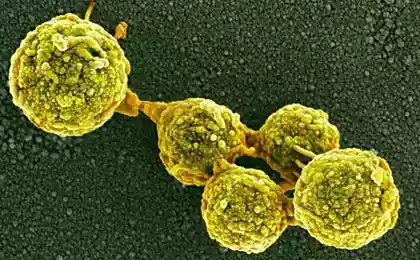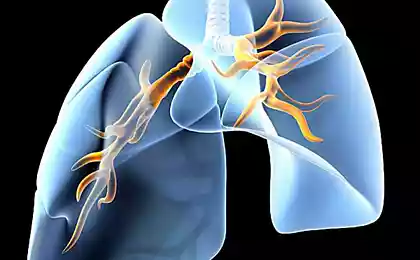226
How to treat skin allergies

How to treat skin allergies
Since April rains bring May flowers - weeds, pollen and mold - it's no surprise that people are more likely to suffer allergies, including skin. According to Dr. Gregory Walker of U.S. Dermatology Partners in Waco, Texas, “In the fall and winter months, people experience red itching due to dryness or exacerbation of chronic skin conditions such as eczema.” In spring and summer, skin irritation is likely to be caused by reactions to allergens and environmental pollen.” In this article, you can learn more about common skin allergies, their causes and ways to prevent them.
Common skin allergies
Allergic skin reactions, like other types of allergies, are your body’s response to external or internal allergens and irritants. When the skin is exposed to these allergens or irritants, it causes itching, inflammation and rashes. Here are five common types of skin diseases associated with allergies:
- Atopic dermatitis (eczema) - a common skin disease that causes itching, irritation and rash. This condition is more likely to worsen in the dry winter months, but people with eczema may also be sensitive to spring and summer allergens and irritants.
- Contact dermatitis A skin reaction that develops after exposure to an allergen or irritant on the skin. The body overreacts to exposure, causing itching, a burning rash and, in more severe cases, blisters or infection. In some people, exposure to the sun can aggravate or exacerbate contact dermatitis. This is more likely when reacting to shaving creams, perfumes or sunscreens.
- Urticaria - red, very itchy stitches on the body. Urticaria almost always develops after contact with an allergen or irritant, but can also be caused by infections. There is also a form of chronic urticaria that is unlikely to be associated with allergies and persists for a long time.
- Angioedema It is inflammation in the deeper layers of the skin that can occur in combination with hives. Most often found around the eyes, mouth and genitals. There are hereditary and recurrent forms of angioedema that are not usually associated with allergens. Allergic angioedema usually lasts only a few hours before clearing up and is usually the result of taking certain medications and foods. It can be an emergency if the tumor is affecting your ability to breathe.
- Other rashes Irritating, itchy and inflamed rashes may have other causes. In most cases, allergic rashes are localized to one area, but can spread to larger parts of the body. Allergens and pollen can cause general skin sensitivity, which leads to a rash that may not have a specific cause. Aside from an allergic reaction, the rash can occur due to infections and certain medications, so you should always check for rashes from a healthcare professional.
There are many causes of skin allergies, including:
- Environmental allergens Plants such as poison oak, ivy and sumac, as well as insect bites, pet dander or other allergens found in the environment, can lead to skin allergies.
- Chemical allergens Latex, rubber, cleaning products, cosmetics, sunscreens, insect sprays, perfumes and other items you come into contact with every day contain chemicals that can cause allergic reactions on the skin. Always be careful when using new products and stop using them if you notice signs of an allergic reaction.
- Metal. Nickel and other coated metals can cause skin discoloration as well as cause an allergic reaction such as swelling and itching. Be careful when wearing new jewelry, using hand-held metal tools, or other activities with metal, as this can cause an allergic reaction.
- Sun exposure Known as light sensitivity, some people may have an allergic reaction to too much exposure to UVA/B. Most people would simply tan or burn if they were in the sun for too long, but in those who have light sensitivity, an allergic reaction can cause blisters, rashes, or urticaria, even if the person is outdoors for only a short time.
- Drugs. Some medications, especially topical ones, can cause an allergic skin reaction. In fact, some people are allergic to hydrocortisone and other itching remedies that are designed to soothe skin allergies. Every time you take new medications or apply topical ointments, pay attention to any signs of increased irritation and stop using.
- Food products Eating certain foods can lead to skin allergies, just as these foods can cause other allergy symptoms, such as throat irritation, inflammation, and other problems. Everyone reacts differently to food allergies, so pay attention to what you ate if you notice signs of skin allergies.
According to Dr. Walker, “after first exposure to the allergen, people may not have a reaction for days or even weeks.” This can make it difficult to identify the specific items you are allergic to. After developing an allergy, the reaction to future exposure usually takes a day or two, so it becomes easier to find the source of your allergy. If the allergic reaction is severe, your doctor may recommend diagnostic tests to determine the source, rather than risking repeated exposure. Some of the main symptoms you should be aware of include:
- Itching or burning skin.
- Irritation or pain.
- Inflammation or swelling.
- Redness or color change.
- Weeping or weeping skin sores.
- Cracked or dry skin.
- Itchy bumps.
- Urticaria (reddish, very itchy areas on the skin that may become paler if pressed on).
- Itchy rash (clusters of red cones with constant itching).
- Peeling (thickening) of the skin.
Dr Walker said: There are some skin allergic reactions that require treatment by a dermatologist, but most skin allergic reactions are mild and can be treated at home. There are three main treatment options for skin allergies: prevention, home care and professional care.
Prevention
To prevent skin allergies, patients should take the following basic steps:
- Find the source of your allergies In some cases, you can determine the cause of your allergy without a professional diagnosis, but if you have frequent or prolonged skin allergies, a dermatologist can help you diagnose the underlying cause.
- Avoid skin allergens Once you know the sources of your allergic reaction, do your best to avoid these allergens.
- Change your clothes and take a shower. After contact with allergens, you should immediately change your clothes and take a shower. Many allergens can cling to clothing or skin and continue to cause irritation and exacerbate an allergic reaction.
- Make sure your skin stays moisturized. After a shower or bath and as often as necessary, you should apply a moisturizer to keep your skin healthy and reduce the risk of irritation and inflammation.
If you have a skin allergic reaction, take the following measures at home:
- Don't scratch! This can cause additional irritation and increase the risk of skin infection.
- Try to determine the cause of the allergy to avoid further exposure.
- Take calming baths with colloidal oatmeal and warm water.
- Apply moisturizer immediately after a bath or shower and as needed to keep the skin moisturized and relieve irritation.
- Take over-the-counter allergy medications (antihistamines) to relieve skin allergy symptoms. Keep in mind that some antihistamines cause drowsiness!
- Use sunscreen and minimize sun exposure during allergies. If you are light sensitive, you should protect your skin every time you are exposed to sunlight. If you are allergic to sunscreen ingredients, discuss with your dermatologist the appropriate sun protection products.
- Apply cold compresses to the area, especially if you have a painful, burning, or inflamed skin rash. Cold also helps reduce itching and reduce the desire to scratch.
- Wear loose clothing made of lightweight breathable materials to avoid further irritation.
If your skin allergic reaction is severe or you notice signs of a systemic allergic reaction, such as itching in your nose and throat or tearing, you should see a dermatologist for more advanced treatment, including:
- Use prescription creams or oral allergy medications, including stronger or longer-lasting antihistamines, as directed by your dermatologist.
- Take prescription biologics to control exacerbations caused by the immune system’s response to allergic skin conditions, such as atopic dermatitis.
- Take corticosteroids to eliminate skin allergies to poison ivy, oak and sumac.
Russian Medical Systems specializes in the sale of cosmetic, medical and massage equipment. For many years we have held a leading position in the market of cosmetic equipment. Over the years, we have gained the trust of many customers and continue to do so because we work for our customers and care for them.
Vacancies where you need a driver's license
High quality sunflower seeds from the best brands at the right price























